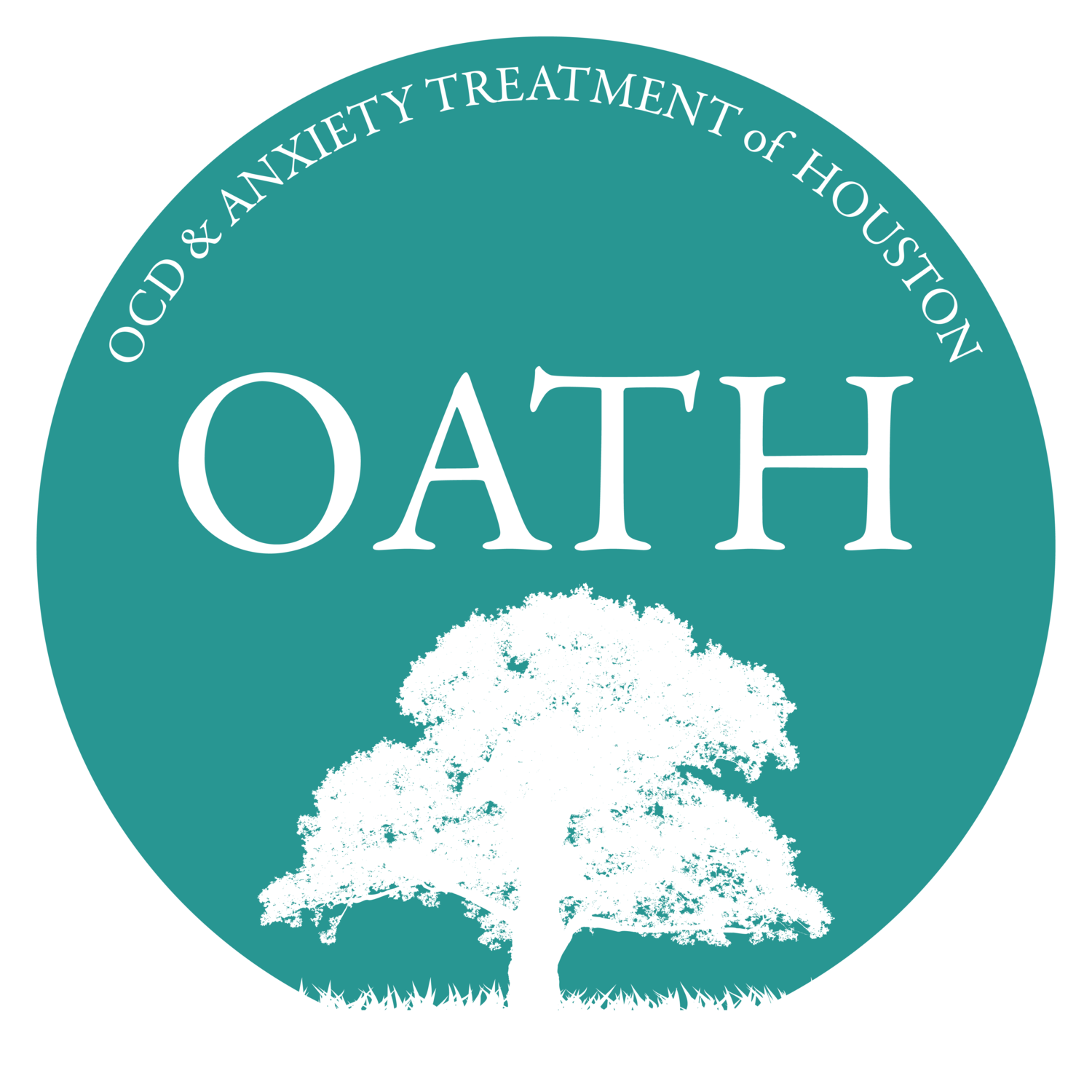Concierge In-Home ERP: Bringing Effective Treatment into Real Life for OCD, Anxiety, and Phobias
For individuals struggling with OCD, social anxiety, specific phobias or panic disorder, therapy often feels most challenging when the triggers exist beyond the walls of a therapist’s office.
At OCD & Anxiety Treatment of Houston (OATH Therapy), we offer a solution that meets people where symptoms actually occur:
🔹 Concierge In-Home Exposure and Response Prevention (ERP) Therapy.
This elevated service brings evidence-based treatment directly to your home or community helping you or your loved one build confidence, reduce avoidance, and reclaim freedom in everyday life.
What Is Concierge In-Home ERP Therapy?
Concierge in-home therapy is a personalized, immersive treatment approach in which OATH clinicians provide ERP and other CBT-based interventions in the environments where your anxiety, obsessions, or avoidance are most intense.
This may include:
- Resisting compulsions in your own home for contamination OCD
- Driving with your therapist on feared roads for driving anxiety
- Practicing assertive communication in real conversations for social anxiety
- Approaching dogs, elevators, bridges, or other feared stimuli for phobias
- Entering stores, gyms, or public spaces while managing symptoms of agoraphobia or panic disorder
This high-touch format gives clients a real-time opportunity to challenge avoidance, build distress tolerance, and gain skills with the guidance of a trained clinician, right in the moment.
Why In-Home & In-Vivo Exposure Works
Exposure therapy is one of the most effective treatments for anxiety disorders and OCD. It works by gradually helping clients face feared situations while preventing safety behaviors or compulsions. When these exposures happen in the real world, called in vivo exposures, they become even more impactful.
📚 Research supports this:
- A meta-analysis in Clinical Psychology Review confirms that ERP and in vivo exposure lead to significant symptom improvement in OCD and other anxiety disorders (Olatunji et al., 2013).
- Studies show that home-based ERP is as effective or more effective than office-based ERP due to improved generalization of skills to daily life (Storch et al., 2007).
- For social anxiety, phobias, and panic, real-world exposure (e.g., public speaking practice, entering feared locations) is central to long-term recovery and shows robust treatment outcomes (Craske et al., 2014).
Conditions That Benefit from In-Home Exposure Work
At OATH Therapy, our concierge ERP model is ideal for treating:
✅ Obsessive-Compulsive Disorder (OCD)
- Contamination fears, checking, harm OCD, symmetry/ordering, taboo obsessions
- Home-based rituals and compulsions
✅ Social Anxiety
- Fear of judgment, avoidance of conversations, blushing/trembling in public
- Real-time exposure with social role-play or in-the-moment interaction
✅ Specific Phobias
- Fear of dogs, heights, elevators, needles, flying, storms, etc.
- Gradual exposure in the feared setting with therapeutic support
✅ Panic Disorder & Agoraphobia
- Fear of bodily sensations (racing heart, dizziness, nausea)
- Avoidance of driving, grocery stores, crowds
- Interoceptive and situational exposure to reduce fear of panic
✅ Driving-Related Anxiety
- Post-accident fear, freeway avoidance, fear of losing control
- In-car exposures with therapist coaching and distress tolerance support
How Concierge ERP Services Work at OATH
Our concierge model is designed for comfort, privacy, and meaningful clinical outcomes. Here’s what clients can expect:
🔹 Initial Consultation We'll explore your symptoms, history, and current challenges to determine whether in-home or community-based ERP is the right fit.
🔹 Personalized Exposure Plan We develop a structured exposure plan and tailor it to your real-life environment, whether that’s your kitchen, car, office, or favorite coffee shop.
🔹 On-Site Therapy Your therapist will meet you in your home, vehicle, or community setting for sessions designed to help you face fears and reduce avoidance in real time.
🔹 Collaborative Family Support When appropriate, we integrate family members to reduce accommodation and coach supportive responses.
🔹 Flexible, Concierge-Level Care Sessions can be scheduled outside traditional hours and are designed to support meaningful progress in the environments where symptoms occur.
Who Is Concierge ERP Therapy For?
This service is especially beneficial for:
- Individuals with severe or treatment-resistant symptoms
- Teens and families who need on-site guidance with rituals
- Professionals seeking discreet, private, high-touch care
- Anyone looking to accelerate progress with immersive therapy
Whether you’re avoiding driving, struggling to leave the house, or battling compulsions that only show up at home, our team is here to help you move forward, where it matters most.
Ready to Get Unstuck, Right Where You Are?
You don’t have to face your fears alone. At OATH Therapy, our concierge in-home ERP services are designed to help you reclaim freedom, confidence, and joy in your everyday life.
📞 Ready to get started? Call (281) 665-0888 to book your consultation today.
🌐 Visit [oaththerapy.com/getting-started](https://www.oaththerapy.com/contact-us
📧 Email info@oaththerapy.com
References
- Olatunji, B. O., Davis, M. L., Powers, M. B., & Smits, J. A. (2013). Cognitive-behavioral therapy for obsessive-compulsive disorder: A meta-analysis of treatment outcome and moderators. Clinical Psychology Review, 33(8), 1180–1192. https://doi.org/10.1016/j.cpr.2013.06.003
- Storch, E. A., Geffken, G. R., Merlo, L. J., et al. (2007). Family-based cognitive-behavioral therapy for pediatric obsessive-compulsive disorder: Comparison of intensive and weekly approaches. Journal of Consulting and Clinical Psychology, 75(4), 556–567. https://doi.org/10.1037/0022-006X.75.4.556
- Craske, M. G., Treanor, M., Conway, C. C., Zbozinek, T., & Vervliet, B. (2014). Maximizing exposure therapy: An inhibitory learning approach. Behaviour Research and Therapy, 58, 10–23. https://doi.org/10.1016/j.brat.2014.03.008

